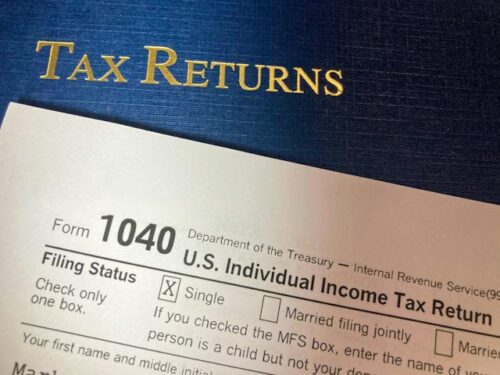
When you owe tax debts, the IRS can be relentless, persistent, and aggressive when trying to collect the money they are owed. As such, you may wonder if declaring bankruptcy can help you during these difficult situations. The following blog explores what you should know about filing for bankruptcy and the IRS, as well as the importance of discussing your circumstances with an Orange County consumer bankruptcy lawyer who can guide you through these matters.
Does the Automatic Stay Apply to the IRS?
First and foremost, it’s important to understand what the automatic stay is. When someone files for bankruptcy, they are granted certain protections and relief, like the automatic stay, which halts all collection efforts against them. This means that wage garnishments, lawsuits, foreclosures, and even letters or phone calls must stop as soon as the collector is informed of the debtor’s decision to file.
The Internal Revenue Service, despite being a government servicer, must abide by the automatic stay. This means they cannot pursue new debts, continue collections or lawsuits, impose liens, or repossess your property once you have declared bankruptcy.
In some instances, the court can lift the automatic stay if a collector files a petition and shows that they would experience irreparable damages if they cannot continue to pursue collection measures against you. However, the automatic stay does not apply to other court matters, like criminal cases or outstanding family matters like child support or alimony.
What Happens to Outstanding Tax Debts?
When you file for bankruptcy and have tax debts, it’s important to understand what you can expect to happen after your case. Debts are either dischargeable, meaning they are wiped out during bankruptcy, or nondischargeable, which means you are still responsible for them at the conclusion of your bankruptcy case. Tax debts are only dischargeable under the following circumstances:
- The debt is at least three years old
- You filed the taxes correctly and on time
- The debt is from income taxes, or if you are a business, gross receipts
- The tax assessment is at least 240 days old
Depending on the Chapter you file, any eligible dischargeable tax debts will be paid during the liquidation process of Chapter 7 or through the three to five-year repayment plan imposed during Chapter 13. At the conclusion of your bankruptcy case, the remaining debt will be discharged. However, if the tax debt is nondischargeable, you will be responsible for the remaining amount, and the automatic stay will be lifted, meaning creditors can continue lawsuits and other collection measures against you.
As you can see, tax debt can be an incredibly complicated matter, especially when dealing with the notorious IRS. If you need help declaring bankruptcy, working with the team at the Law Offices of Michael D. Pinsky, P.C., is in your best interest. We can explore your options and pursue bankruptcy to help you receive a financial fresh start. Contact our team today to learn how we can fight for you during these challenging times.
